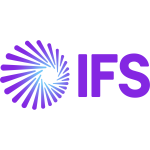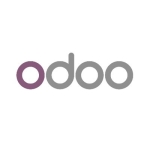What is our primary use case?
I use SAP ERP in my company for its entire package that provides masking and condition techniques, along with the details of all the employees and everything, starting from manufacturing, procurement, maintenance of facilities, onboarding, and warehousing.
What is most valuable?
A person gets to use the valuable features of the solution depending on how you have implemented the tool. If the tool doesn't have a required process, its user has to put that particular process into it, which is tedious.
What needs improvement?
SAP ERP needs to be made simpler. The tool is generally not very complicated to use and is easy to use.
SAP ERP needs to consider simplifying a few areas within the tool. Compared to SAP ERP, other solutions in the market are much more easily configurable and understandable. SAP has a lot of complex features. In the future, if SAP ERP offers small, medium, and large versions of the product separately, then the implementation process can be made easier.
For how long have I used the solution?
I have been using SAP ERP for four years. I use SAP ERP with SAP S/4HANA 1809, but my company plans to move to SAP S/4HANA 1909 soon. I am a user of the solution.
What do I think about the stability of the solution?
Stability-wise, I rate the solution a three out of ten.
The standard options of the tool don't work well, and for each and everything, there are new options. When SAP adds new options, the integration of the other modules is not taken care of, and then the fix-around needs a lot of time.
What do I think about the scalability of the solution?
Scalability-wise, I rate the solution an eight out of ten.
Around 400 people in my company use the tool.
The tool is used daily in my company.
How are customer service and support?
SAP ERP's technical support takes a lot of time when it comes to handling errors and debugging errors. The coordination of technical support with different users takes a lot of time. I rate the technical support a four out of ten.
How would you rate customer service and support?
Which solution did I use previously and why did I switch?
Previously, my company used a product from Oracle. My company shifted to SAP ERP from Oracle after our company's plans to move to a manufacturing setup.
How was the initial setup?
I rate SAP ERP's initial setup phase a four on a scale of one to ten, where one is a difficult setup, and ten is an easy setup.
SAP ERP's initial setup phase was quite difficult.
SAP ERP's initial setup phase was complex, as my company had to seek help from a third party while maintaining a lot of coordination and months of discussions with them to get the tool fully usable.
The solution is deployed on an on-premises model.
The solution can be deployed in twelve months.
SAP ERP has three modules or sections that help with the installation areas like the development, quality, and deployment of SAP. SAP takes or collects the data from each of the departments and the processes, and then it gets put into the area that deals with quality in SAP. The signoff of the UAT and any other agreements is done before proceeding with the final deployment.
What about the implementation team?
The product's deployment was carried out in my company with the help of a consultant from SAP and a third-party integrator.
What was our ROI?
From a long-term perspective, I can say that the solution can offer a return on investment, but it may take around three to four years for our company to experience it. Currently, I don't think the product offers my company any return on investment.
What's my experience with pricing, setup cost, and licensing?
I rate the product's price a nine on a scale of one to ten, where one is cheap or affordable, and ten is really expensive. The solution is expensive.
What other advice do I have?
SAP ERP's maintenance can be described as an ongoing process. Ongoing maintenance is required in the product, owing to issues like bugs and the fact that the processes are not integrated well enough.
I rate the overall product a seven out of ten.
Which deployment model are you using for this solution?
On-premises
Disclosure: My company does not have a business relationship with this vendor other than being a customer.















